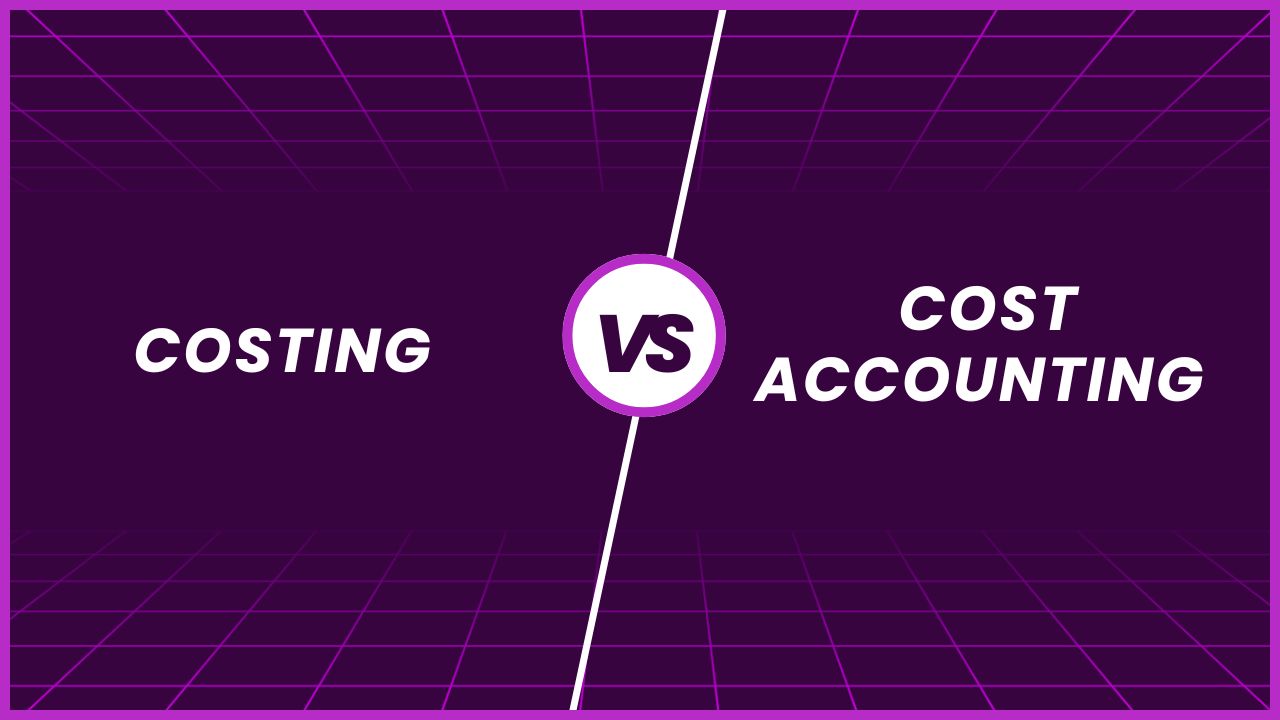In the complex world of business, understanding financial health is essential. Have you ever wondered how companies manage their expenses and make strategic decisions? This is where costing and cost accounting come into play. Although often used interchangeably, they are different concepts. Let’s dive into the engaging world of costing and cost accounting, explore their differences, and understand their significance in the business world.
Definition of Costing
Costing determines the cost associated with producing a product or providing a service. It’s like figuring out how much it costs to bake a cake, considering ingredients, labor, and overheads. Costing helps businesses set the right prices and manage their resources efficiently.
Definition of Cost Accounting
Cost accounting is a system used to track and analyze all the expenses involved in producing a product. It focuses on calculating, controlling, and reducing costs to ensure efficiency. The main goals are to determine the exact cost of production and manage expenses effectively. By keeping detailed records of costs, businesses can make informed financial decisions, improve cost management, and ultimately increase profitability.
Difference Between Costing and Cost accounting
| Aspect | Costing | Cost Accounting |
|---|---|---|
| Definition | Determining the cost of producing a product or service | Complete system for tracking, recording, and analyzing costs |
| Purpose | Calculate the actual cost of production | Assist in planning, controlling, and decision-making |
| Scope | Narrow focus on product/service cost | Broad focus including cost analysis, control, and reduction |
| Focus | Product-centric | Management-centric |
| Approach | Practical and specific to production | Analytical and strategic |
| Techniques/Methods | Job Costing, Process Costing, Activity-Based Costing | Standard Costing, Marginal Costing, Absorption Costing |
| Information Provided | Data on the cost of production | Comprehensive financial analysis including variances and trends |
| Users | Production and operations teams | Management and decision-makers |
| Application | Used for setting prices and managing resources | Used for strategic planning and performance evaluation |
| Components | Focuses on types of costs: direct, indirect, fixed, variable | Includes cost analysis, cost control, cost reduction |
| Decision-Making | Helps in setting competitive prices | Provides insights for strategic decisions |
| Financial Reporting | Limited financial insights | Detailed financial analysis and reporting |
| Performance Evaluation | Less emphasis on performance metrics | A comprehensive system for tracking, recording, and analyzing costs |
| Practical Applications | Manufacturing, customized product production | Manufacturing, service industry, retail |
| Challenges | Implementation is straightforward but limited in scope | A key tool for evaluating operational efficiency |

Types of Costs
- Direct Costs: These are costs that can be directly traced to a product, like raw materials and labor.
- Indirect Costs: These costs cannot be directly attributed to a specific product, such as utilities and rent.
- Fixed Costs: Costs that remain constant, regardless of the production volume, like salaries and lease payments.
- Variable Costs: Costs that vary with production levels, such as raw materials and packaging.
What Costs Are Included in Cost Accounting?
The types of costs in cost accounting can differ based on the industry and the specific company. However, some common categories usually make an appearance. These include:
- Direct Costs: Expenses directly tied to producing a product or service.
- Indirect Costs: Costs that are not directly linked to production but are necessary for operations.
- Variable Costs: Expenses that change based on the level of production or business activity.
- Fixed Costs: Costs that remain constant regardless of production levels.
- Operating Costs: Expenses needed to run the day-to-day operations of a business.
These categories often overlap but give a general idea of what costs are considered in cost accounting.
In Summary of difference between costing and cost accounting

Understanding the difference between costing and cost accounting is required for any business looking to succeed in today’s competitive environment. While costing focuses on determining the cost of products or services, cost accounting provides a broader financial analysis, helping businesses make strategic decisions. Together, they form the backbone of effective financial management, helping businesses to control costs, set competitive prices, and achieve long-term success.
FAQs
What is the main difference between costing and cost accounting?
Costing is about determining the cost of producing a product or service, while cost accounting involves analyzing, controlling, and reducing costs to aid in decision-making.
What industries benefit the most from cost accounting?
Manufacturing, service, and retail industries benefit significantly from cost accounting, as it helps manage costs, improve efficiency, and enhance profitability.
How does cost accounting help in business decision-making?
Cost accounting provides detailed financial insights, helping management make informed decisions on pricing, budgeting, and resource allocation.
What are the common challenges in implementing cost accounting systems?
Challenges include the complexity of setup, ensuring data accuracy, and adapting to evolving business environments.
Can costing be used without cost accounting?
Yes, costing can be used independently to determine product costs, but integrating it with cost accounting provides a comprehensive financial analysis.
Read More:
